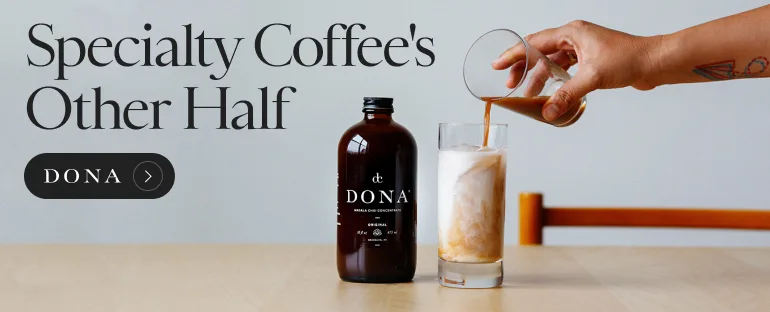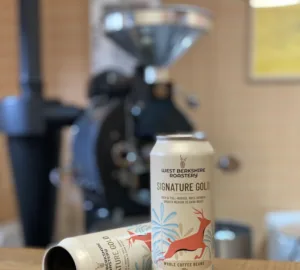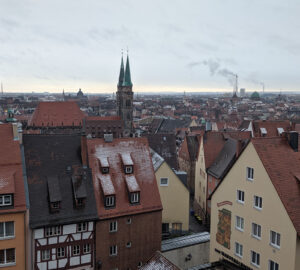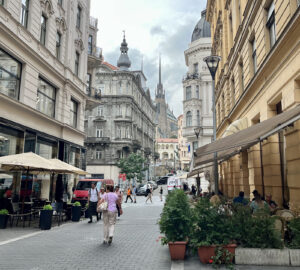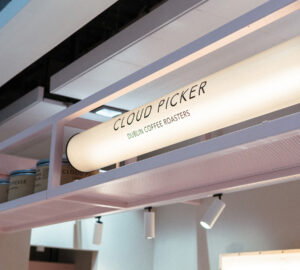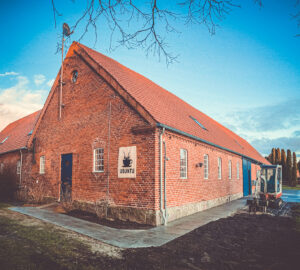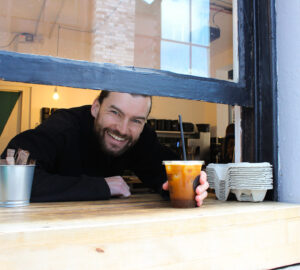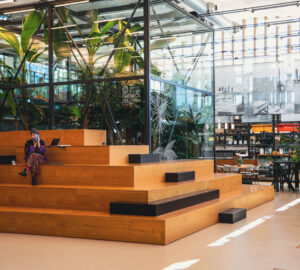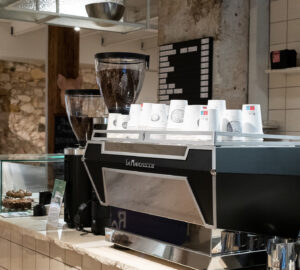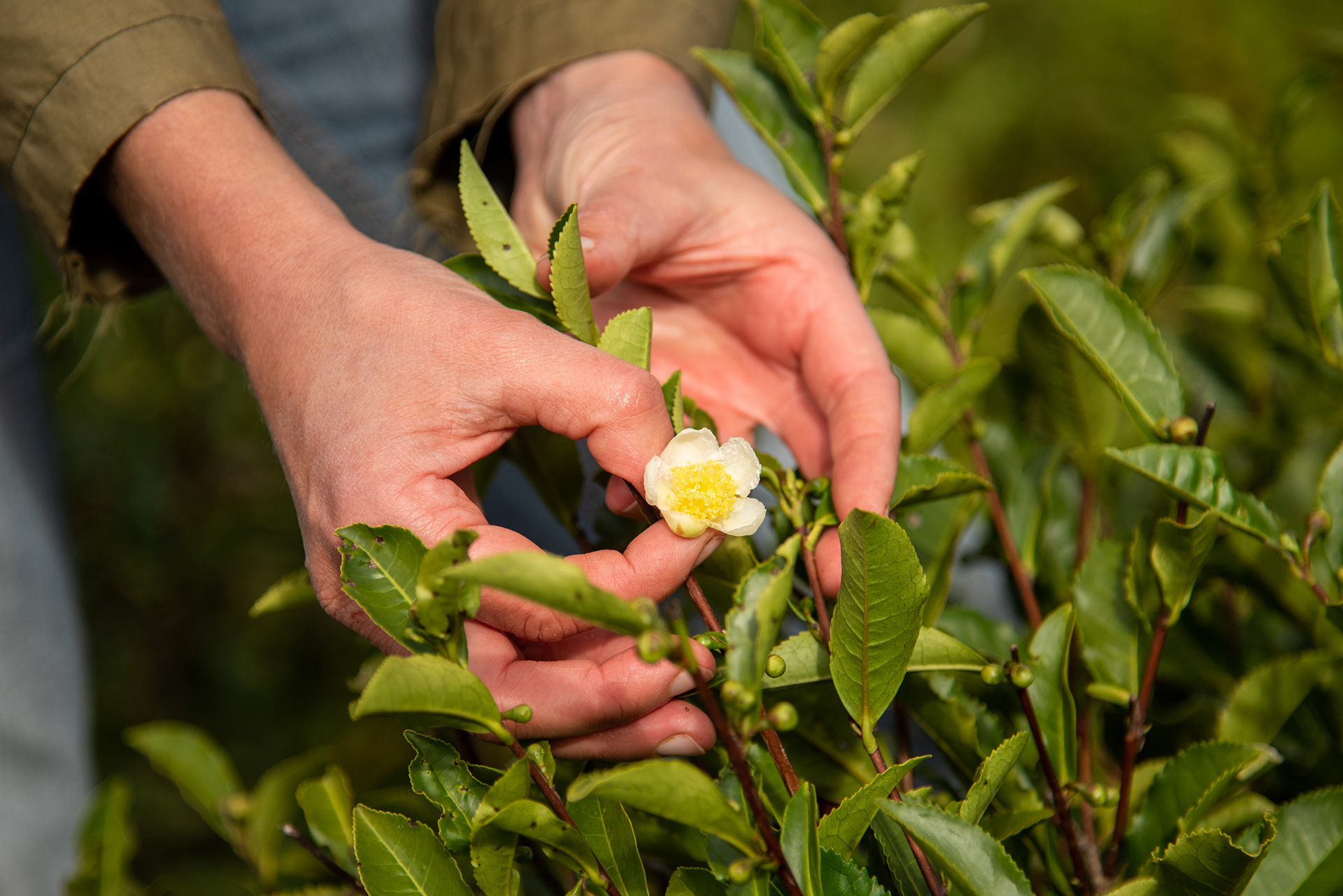
When spring comes, bringing mild sunny days, it is finally time to hand-pick the first tender tea leaves in the camellia fields in the small town of Fornelo, in the north of Portugal, where the only commercial tea plantation in mainland Europe is located.
“We work hard all year long for this. It is like a ritual, a time of great happiness for the whole team,” says Nina Gruntkowski, an organic artisanal tea grower and co-founder of Chá Camélia.
With baskets tied to their shoulders, a team of only eight people runs through the green plantations of camellia shrubs, delicately removing one by one the leaves that will give rise to some of Gruntkowski’s most special teas, such as her Kintsugi Tea, which arose out of her ongoing partnership with Haruyo and Shigeru Morimoto, revered tea growers in Japan’s Miyazaki Prefecture. This blend uses only the early spring tea leaves, the first ones in each harvest, and it is made in a traditional Japanese iron bowl that delivers elegant and delicate aromas to the tea, perfectly expressing both freshness and brightness.
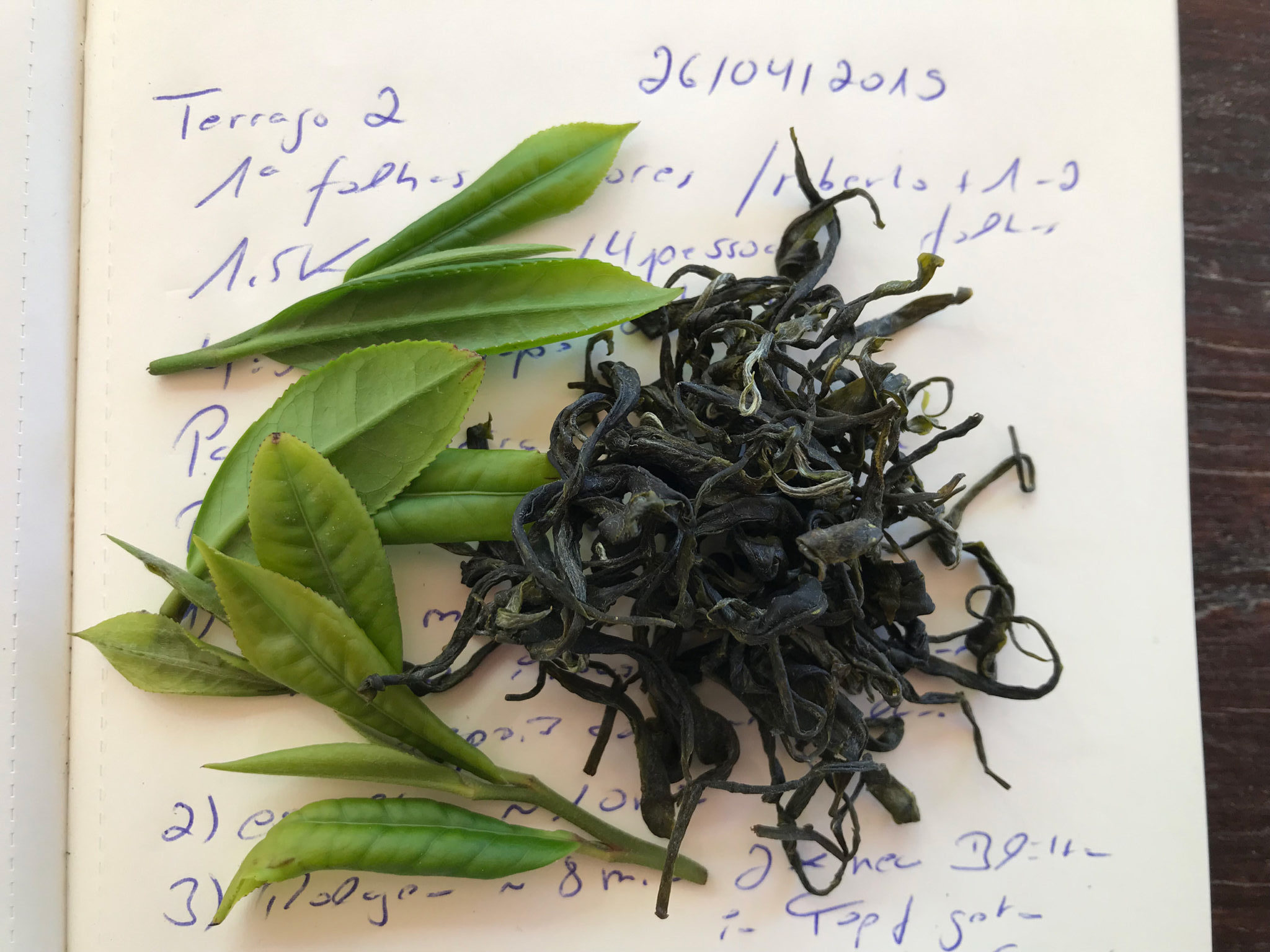
Kintsugi refers to the Japanese art of repairing broken pottery by mending the areas of the breakage with lacquer dust or with powdered gold, making the piece even more valuable. The blend was named after such a technique when Gruntkowski, coming back from a tea education trip in Japan, found out that the precious iron bowl that had been gifted to her by her partners, the Morimotos, had broken during travel. On opening her suitcase, she noticed it was cracked in two pieces, but luckily she managed to have it repaired using the traditional kintsugi method.
The anecdote is also a metaphor for the adventure Gruntkowski, a former radio journalist from Germany, embarked upon when she arrived in Portugal in 2007, determined to stay. The fact that she’d just met the man who would become her husband, the trailblazing winemaker Dirk Niepoort, from the eponymous family acclaimed for its Port wines, was crucial in her decision. But her great passion for the tea world—and for the idea of joining together an excellent terroir and a nation without any traditions in this field—became the main reason for her to choose to put down roots in the country.
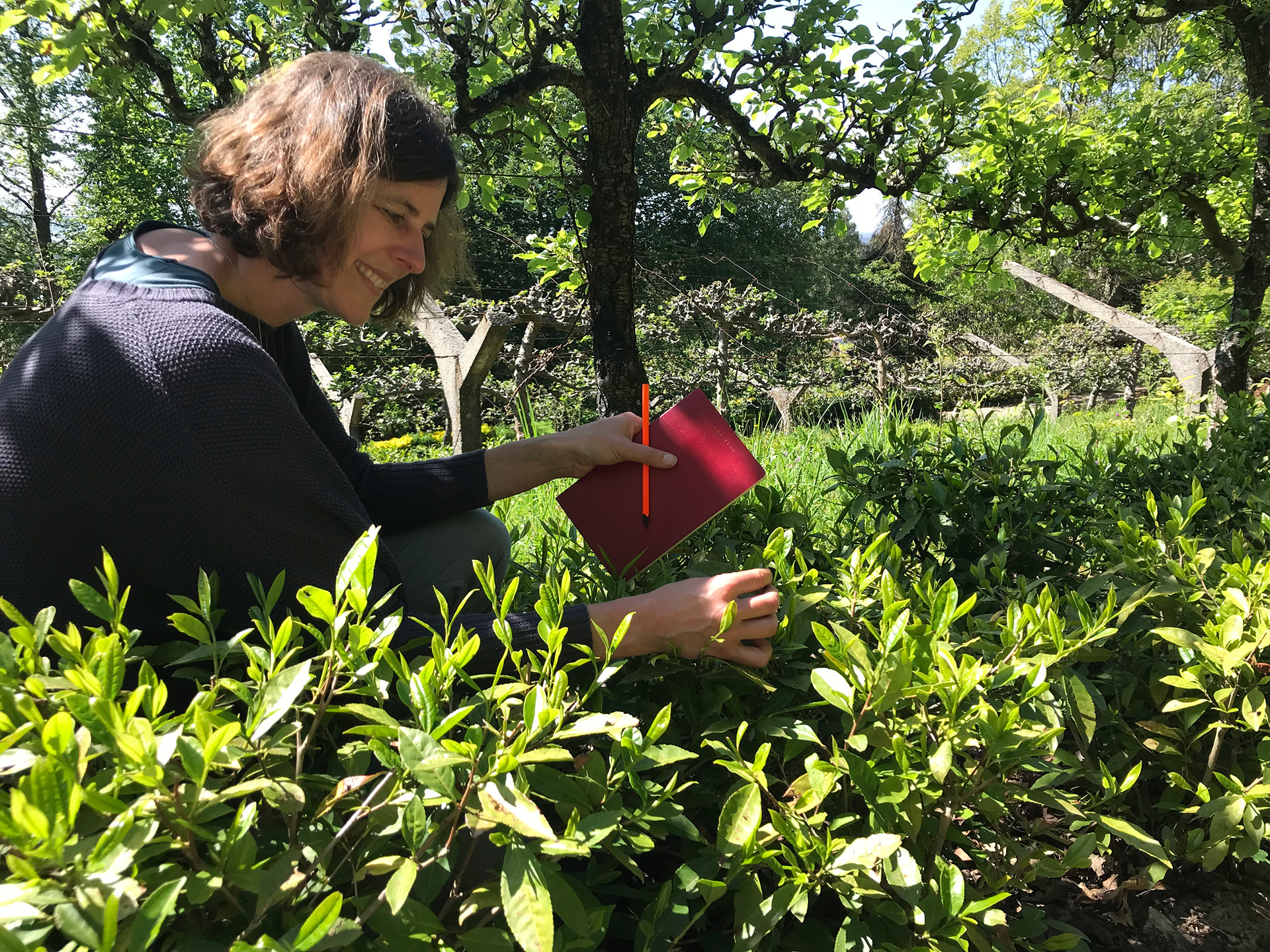
It was during a work interview that she realized the similarities between the camellias that grow well in the North of Portugal and Japanese tea plants. Planting an experimental garden in Portuguese soil seemed the right thing to do. In 2011, Chá Camélia was born, with help from the Morimotos of Miyazaki. In a country established for its world-famous wines and top-quality olive oils, starting a tea plantation seemed daring. Gruntkowski recalls her apprehension when they tasted the first tea samplers of 200 camellia sinensis plants grown in their home garden in Porto, where climatic conditions proved to be ideal since the rain is a constant (with an average of 1,400 milliliters per year).
“We were delighted with the first results,” she says. “We had tea with a unique character. Over time, we got other specialists to taste, and so far, people are quite open; they seem curious and very positive about the quality of what we are doing. It has been an amazing stimulus,” she says.
Chá Camélia has sought a particular identity in the market. In 2014, the partners invested in a proper one-hectare plantation that went through five years of biological work before the tea was ready to pour worldwide. (Other than Portugal, they are present in many European countries, Brazil, and recently also in the US.) Besides the unique terroir and its “unusual blends.” Gruntkowski says her brand has been trying to find an original path in the world beverage industry.
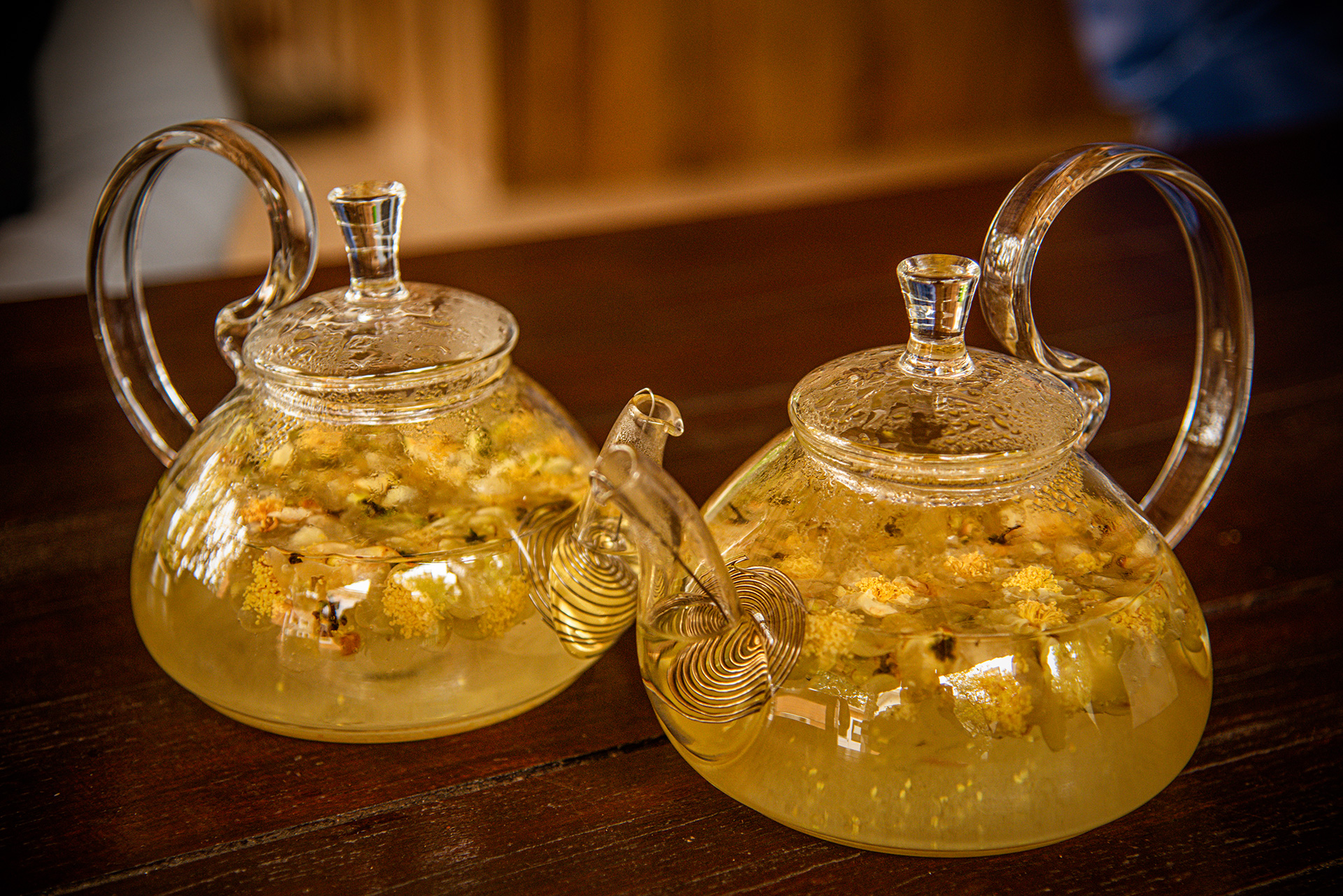
“Japan makes wonderful teas, China too, but I have no interest in mimicking what they do,” says Gruntkowski. “I believe that, with the deep inspiration we have from these countries, we can create new things our own way.” Besides Kintsugi Tea, Camélia concocted other unique offerings, such as Pipachá Tea, which ages for months in Port wine casks (from Niepoort, of course), and Sencha Rose Tea, that uses rose petals added to a high quality Sencha, offering a floral touch to create a fine and complex mixture.
More recently, Gruntkowski partnered with celebrity chef Ljubomir Stanisic (the host of Nightmare on the Kitchen) to create the Flower Power, a blend that merges the green tea leaves from the summer harvest to the flowers of the camellia sinensis, creating a delicate aroma and an elegant and complex body.
“Portugal is a country with plenty of native natural aromas and we decided to bring some of them to our teas,” Gruntkowski explains. It encompasses Portuguese aromatic native herbs (like lemongrass leaves, or erva-príncipe) and edible flowers. The process of creating the different blends is, most often than not, empirical, according to what the couple tastes, including other beverages. The fact that they work in distinct industries helps to enrich the gustatory and aromatic repertoire of both.
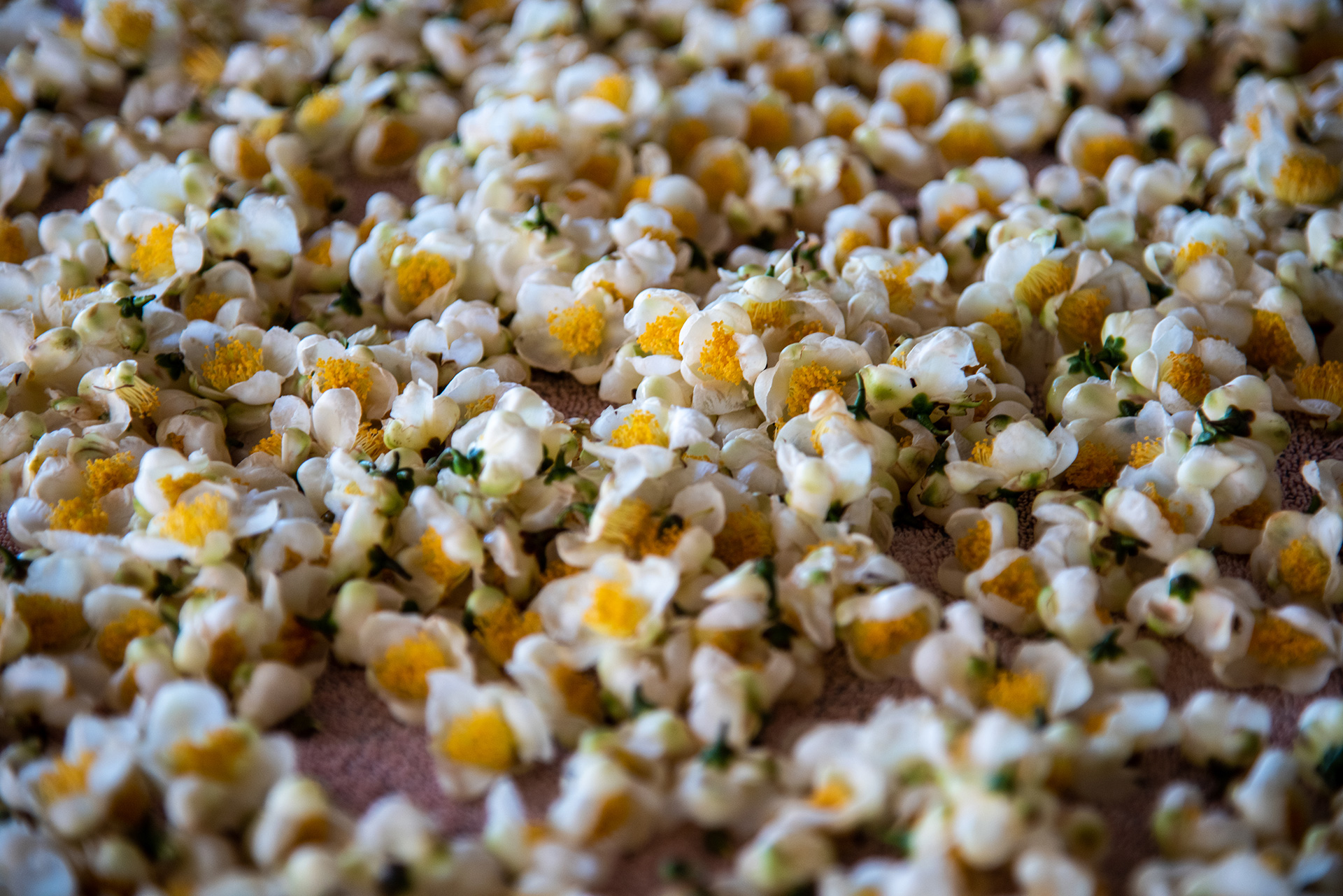
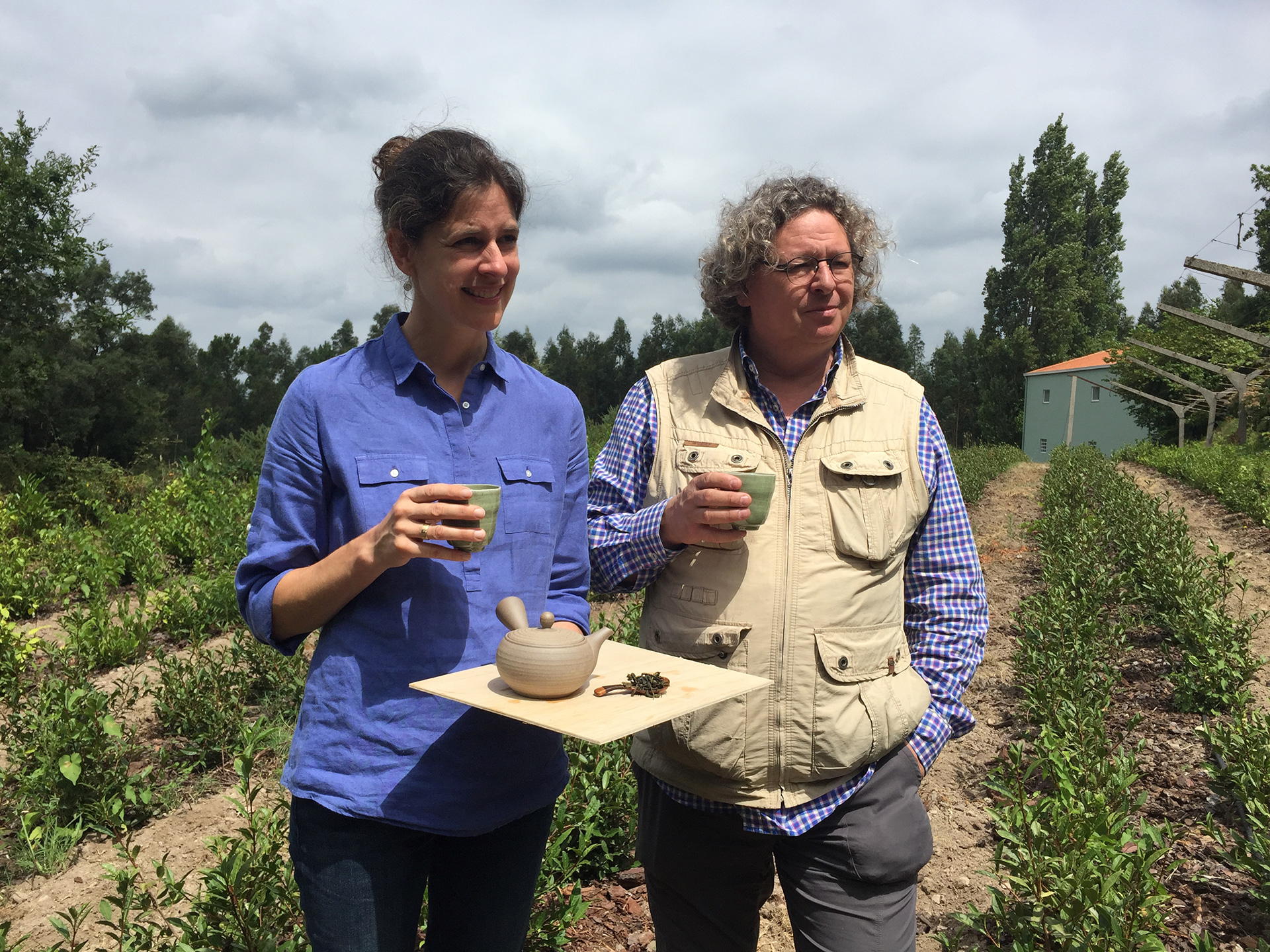
“I believe we have a particularity, both Dirk and I: we like to get our hands dirty. We learn a lot by doing. Obviously, I read many books, watch many movies, and visit many farms worldwide for inspiration. But in the end, we learn more from our daily practice in the field, whether with the wine, or with the tea,” she says.
In five years or so, Chá Camélia will be able to rely on more fresh leaves from another region of Portugal also known for the winemaking: the Dão. In Gouveia, the partners began a new plantation with 1,500 camellia shrubs to test the new terroir. If things evolve well, more 7,000 plants will be added next year. “I think we are fearless and maybe a little bit reckless. We try it, and then we see how things pan out. Most of the time, it works well.”
Rafael Tonon is a freelance journalist based in Portugal. Read more Rafael Tonon on Sprudge.
Photos by Katya Delimbeuf and Adelchi Ziller.













